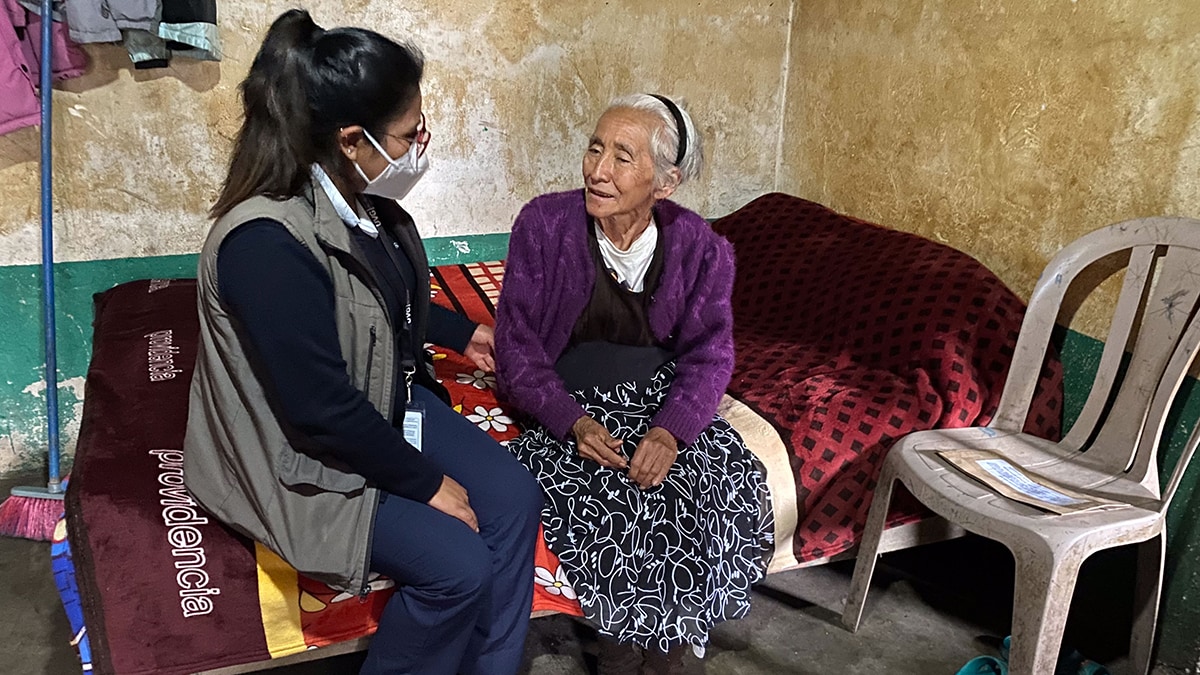Key points
- CDC supports the Antibiotic Resistance in Communities and Hospitals (ARCH) research consortium.
- ARCH conducts innovative studies to investigate high-risk, antimicrobial-resistant pathogens in six countries to improve understanding of how these pathogens spread in communities and healthcare settings.
- The ARCH studies help fill an important data gap about antimicrobial resistance in low- and middle-income countries.

The Antibiotic Resistance in Communities and Hospitals Research Consortium
CDC’s International Infection Control Branch (IICB) supports the Antibiotic Resistance in Communities and Hospitals (ARCH) research consortium, part of CDC’s Global Antimicrobial Resistance Laboratory and Response Network.
ARCH conducts innovative studies to investigate high-risk, antimicrobial-resistant pathogens in six countries to improve understanding of how these pathogens spread in communities and healthcare settings. The ARCH studies take place in Bangladesh, Botswana, Chile, Guatemala, India, and Kenya.
Initial studies found alarmingly high rates of antimicrobial resistance (AR) in both hospitals and communities with probable AR spread between the two settings1. Studies are now investigating risk factors for colonization with antimicrobial-resistant bacteria and how colonization impacts health. Results inform efforts to prevent colonization and infection with these bacteria.
What is colonization and why does it matter?
You may know that infections caused by antimicrobial-resistant bacteria can be difficult or sometimes impossible to treat. However, people can also become colonized with antimicrobial-resistant bacteria.
Impact of colonization
A new way of studying global AR burden
Data on AR from low- and middle-income countries (LMICs) are sparse, and ARCH studies help fill an important gap. Current global systems to track AR only collect data about clinically recognized infections, that is, infections confirmed by laboratory tests. In LMICs, laboratory and diagnostic capacity is often limited. Because of this, clinical infections may not be recognized, leading to incomplete data for tracking AR.
By collecting data on colonization instead of infections, ARCH studies provide a more complete picture of AR in communities and hospitals in LMICs.
Initial ARCH results
High rates of colonization found in LMICs
Data from these studies also revealed that:
- Although antimicrobial-resistant bacteria are frequently associated with healthcare settings, these pathogens exist, sometimes at similar levels, in the community.
- Colonization with extended-spectrum cephalosporin-resistant Enterobacterales (ESCrE), identified as a serious threat in CDC’s 2019 AR Threats Report2, is common in both communities and hospital settings across ARCH sites, ranging from 29% in the community in Chile to 82% in hospitals in India and Bangladesh.
- Colonization with carbapenem-resistant Enterobacterales (CRE), known as the “nightmare bacteria”2 because few alternative antibiotics are left to treat infections caused by CRE, was less common but was detected in both communities and hospitals across all ARCH study sites, ranging from less than 1% in the community in Botswana to 37% in hospitals in Bangladesh and Guatemala.
ARCH future direction
Given the high frequency of colonization with antimicrobial-resistant bacteria in the ARCH sites, ARCH studies are now investigating how colonization may impact health in the hospital and community. ARCH investigators are conducting follow-on studies to further understand the epidemiology of AR in communities and hospitals in LMICs, which can inform targeted prevention measures. Some of these ongoing studies include:
- Investigating how colonization with antimicrobial-resistant bacteria impacts the health of hospitalized patients in Bangladesh, Chile, and Botswana.
- Evaluating the relationship between infant colonization and growth, infections, and antibiotic use in Bangladesh, Kenya, and Botswana.
- Measuring exposure to antimicrobial-resistant pathogens in the environment by testing food, water, and animal samples in the community in Guatemala.
The ARCH consortium is a platform for specialized studies that can advance the understanding of AR drivers and inform public health measures.
Learn more about what CDC and partners are doing globally to detect, prevent, and respond to AR.
- The evolving challenges of antibiotic resistance in low- and middle-income countries: Priorities and solutions. Clinical Infectious Diseases, Volume 77, Issue Supplement_1, 1 July 2023. https://academic.oup.com/cid/issue/77/Supplement_1
- U.S. Centers for Disease Control and Prevention. (2019). Antibiotic resistance threats in the United States, 2019. https://www.cdc.gov/antimicrobial-resistance/data-research/threats/
